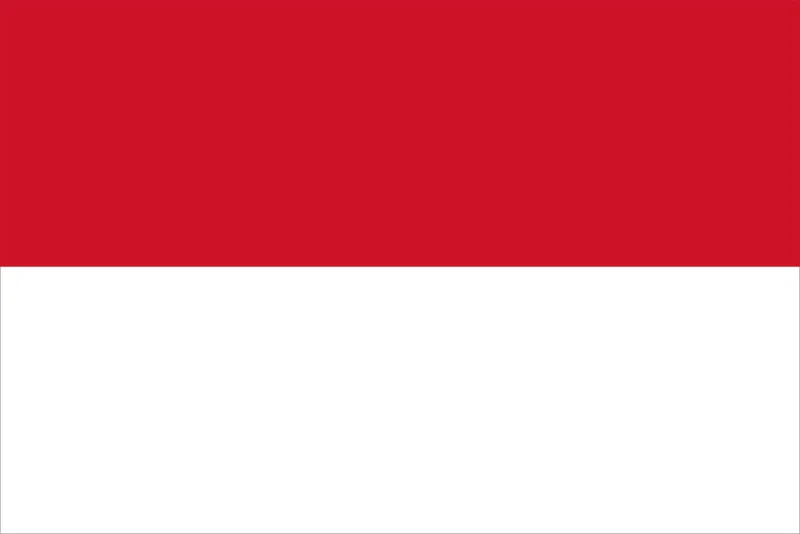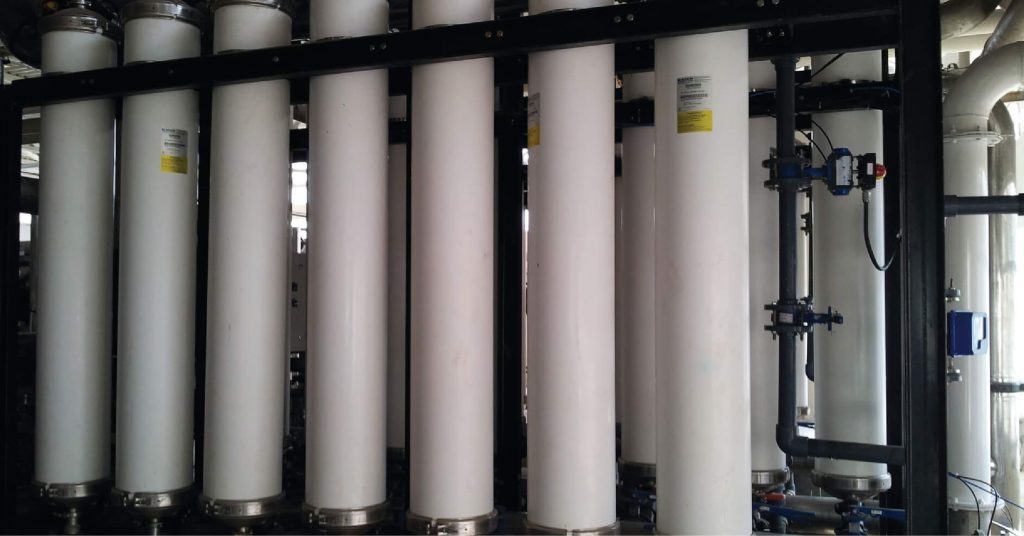Water scarcity and contamination are significant challenges faced by many regions worldwide, including Indonesia. As the country experiences rapid industrialization, agriculture expansion, and urbanization, ensuring a sustainable and reliable clean water supply has become more crucial than ever. One advanced water treatment technology that has gained prominence is ultrafiltration (UF).
Ultrafiltration utilizes ultrafiltration membranes to effectively filter out contaminants, providing a reliable solution for clean water supply. In Indonesia, ultrafiltration has been increasingly adopted due to its numerous benefits and wide range of applications, especially in regions struggling with water quality issues.
What is Ultrafiltration?
Before diving into the benefits and applications of ultrafiltration, let’s first understand what ultrafiltration is and how it works. Ultrafiltration is a membrane-based water treatment process that uses ultrafiltration membranes to separate particles, pathogens, and contaminants from water. The ultrafiltration membrane operates at a pore size ranging between 0.01 and 0.1 micrometers, effectively filtering out suspended solids, bacteria, viruses, and other contaminants. Unlike reverse osmosis, ultrafiltration does not require high-pressure systems, making it more energy-efficient and cost-effective.
Benefits of Ultrafiltration in Indonesia
1. High Removal Efficiency of Contaminants
One of the primary benefits of ultrafiltration in Indonesia is its high removal efficiency. The ultrafiltration membrane can effectively eliminate pathogens like bacteria, viruses, and parasites, as well as suspended solids, organic compounds, and other contaminants from water sources. This makes ultrafiltration ideal for treating water from rivers, lakes, and groundwater that may be prone to contamination.
In regions where water sources are heavily polluted, ultrafiltration ensures the removal of harmful particles, providing safe and clean water for drinking, industrial, and agricultural use.
2. Cost-effective and Energy-Efficient
Ultrafiltration systems are known for their energy efficiency and low operating costs. The technology does not require high-pressure pumps like reverse osmosis systems, which helps reduce energy consumption and operating costs. Additionally, ultrafiltration membranes have a longer lifespan compared to traditional treatment methods, reducing the need for frequent replacements and maintenance.
In Indonesia, where energy costs can be high and water scarcity is an ongoing issue, ultrafiltration offers a cost-effective solution that meets the growing demand for clean water without putting excessive strain on energy resources.
3. Low Maintenance and Simple Operation
Another significant advantage of ultrafiltration is its low maintenance and ease of operation. Ultrafiltration systems have fewer moving parts, reducing the likelihood of mechanical failures. The membranes are designed to be self-cleaning, which minimizes the need for extensive maintenance.
For regions in Indonesia that may lack the resources or infrastructure to support complex water treatment systems, ultrafiltration provides a simpler, more accessible option that requires less skilled labor and reduces operational complexities.
4. Versatility in Water Source Applications
Ultrafiltration can be applied to a wide range of water sources, including surface water, groundwater, and even brackish water. In Indonesia, where water sources vary from rivers and lakes to shallow wells and coastal aquifers, ultrafiltration can be tailored to meet the specific needs of different regions.
Whether used in urban water supply systems, rural communities, or industrial facilities, ultrafiltration membranes effectively address the varying water quality challenges in Indonesia, ensuring access to clean water in diverse settings.
5. Sustainable Solution for Water Scarcity
Water scarcity is an increasingly pressing issue in Indonesia, with many regions experiencing drought-like conditions and insufficient access to safe drinking water. Ultrafiltration offers a sustainable solution to address these challenges. By providing a reliable means of treating water, ultrafiltration reduces dependence on limited and often over-extracted groundwater resources.
Moreover, ultrafiltration technology can be integrated with other water treatment processes, such as reverse osmosis, to enhance the overall efficiency of water treatment systems, contributing to a more sustainable water supply in the long term.
Applications of Ultrafiltration in Indonesia
1. Urban Water Supply Systems
In Indonesia’s rapidly urbanizing areas, increasing populations place a strain on existing water resources and infrastructure. Ultrafiltration is widely used in urban water supply systems to treat water from surface sources, such as rivers and lakes, providing safe and clean water for urban residents.
Cities like Jakarta, Surabaya, and Bandung have adopted ultrafiltration systems to improve water quality and ensure access to reliable and sustainable water supplies.
2. Rural Community Water Treatment
In rural areas of Indonesia, access to clean water remains limited, contributing to waterborne diseases and public health issues. Ultrafiltration systems have proven effective in treating water for rural communities, where centralized water treatment infrastructure may be lacking.
Portable ultrafiltration units are particularly useful in remote regions, providing a decentralized water treatment solution that can be operated by local communities, reducing dependence on external water sources.
3. Agricultural Applications
Agriculture is a significant sector in Indonesia, and water scarcity poses a threat to crop production. Ultrafiltration technology is used to treat irrigation water, removing contaminants and improving water quality for agricultural purposes.
By ensuring a clean water supply for irrigation, ultrafiltration helps maintain productivity and sustainability in agriculture, especially in regions where access to clean water is limited.
4. Industrial Water Treatment
In industries such as manufacturing, food processing, and pharmaceuticals, water quality is critical. Ultrafiltration systems are deployed to treat industrial wastewater and ensure compliance with strict water quality standards.
This not only helps industries maintain operations but also reduces the environmental impact of wastewater discharge, contributing to more sustainable industrial practices.
Meeting Indonesia’s Water Treatment Needs with Ion Exchange
Ion Exchange is a leading provider of water treatment solutions in Indonesia, offering a range of ultrafiltration systems designed to meet the diverse needs of its clients. The company’s expertise in water treatment ensures that each ultrafiltration system is tailored to the specific requirements of the application, whether it’s for residential, commercial, or industrial use.
HYDRAMEM – Ultrafiltration Membrane
It is a tangential flow, a pressure-driven process that effectively filters particles based on their molecular size. With pore diameters ranging from 10 to 200 Å (0.001 to 0.02 microns), ultrafiltration membranes allow solvents and smaller species to pass through, resulting in a purified ultrafiltrate known as permeate, while larger particles are retained and concentrated. These membranes are reusable and can be cleaned with standard chemicals, making them highly efficient for continuous use. Ultrafiltration in process water treatment ensures the removal of nearly all particulate matter, suspended solids, bacteria, viruses, pyrogens, and colloidal materials, including non-reactive silica, iron, aluminum, and high molecular weight organics, making it essential for pharmaceutical and industrial applications.
Conclusion
Ultrafiltration is a highly effective water treatment technology that has found widespread application in Indonesia due to its numerous benefits. From providing high removal efficiency of contaminants to offering energy efficiency and low operational costs, ultrafiltration addresses the country’s water quality challenges.
As Indonesia continues to grapple with water scarcity and the need for sustainable solutions, ultrafiltration offers a promising pathway toward ensuring safe, clean, and reliable water supplies. Whether for urban, rural, agricultural, or industrial use, ultrafiltration membranes play a crucial role in supporting Indonesia’s water treatment needs.
Connect with Ion Exchange experts today to learn more about ultrafiltration and how it can be applied in your specific situation.


